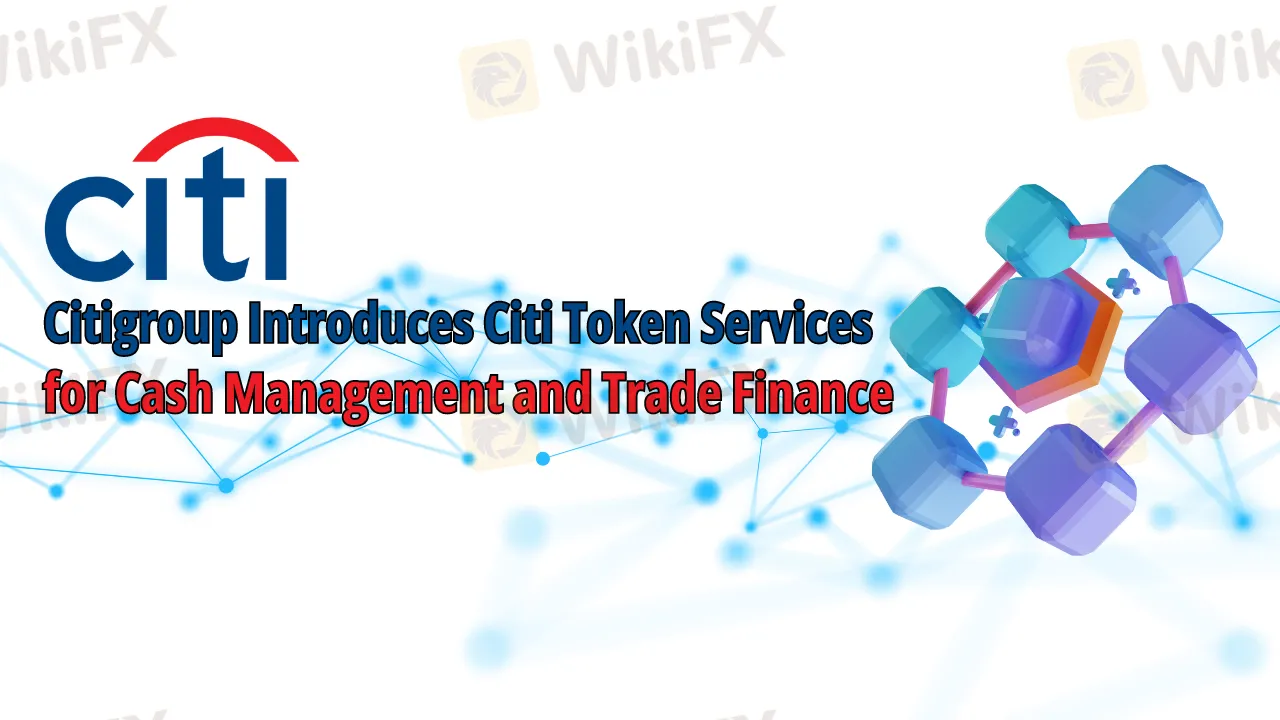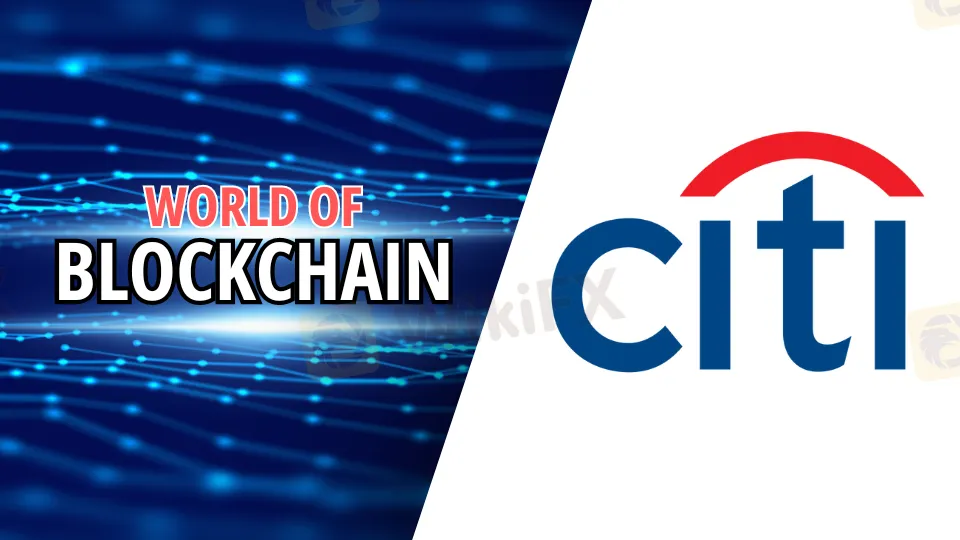简体中文
繁體中文
English
Pусский
日本語
ภาษาไทย
Tiếng Việt
Bahasa Indonesia
Español
हिन्दी
Filippiiniläinen
Français
Deutsch
Português
Türkçe
한국어
العربية
Citigroup Introduces Citi Token Services for Cash Management and Trade Finance
Abstract:Citigroup's groundbreaking Citi Token Services leverage blockchain and smart contracts to revolutionize cash management and trade finance, enhancing efficiency and transparency. Explore how these digital asset solutions are reshaping the financial industry and benefiting institutional clients.

Citigroup, a global financial giant, has recently unveiled its innovative Citi Token Services aimed at enhancing cash management and trade finance. In this article, we'll delve into the details of this exciting development, explaining how it works and its potential impact on the financial industry.
What are Citigroup Token Services?
Citigroup Token Services represents a groundbreaking approach to cash management and trade finance. These services leverage cutting-edge technologies like blockchain and smart contracts to deliver digital asset solutions tailored for institutional clients.
Integration of Tokenized Deposits and Smart Contracts
One of the core features of Citi Token Services is the integration of tokenized deposits and smart contracts into Citigroup's global network. This integration brings a significant upgrade to the fundamental capabilities of cash management and trade finance. But what does this mean?
Tokenized Deposits: Tokenized deposits are a digital representation of traditional deposits, stored securely on a blockchain. This technology allows for more efficient and transparent management of funds.
Smart Contracts: Smart contracts are self-executing contracts with the terms of the agreement directly written into code. They automate various aspects of transactions, reducing the need for intermediaries and the risk of errors.
The Potential of Digital Asset Technologies
Shahmir Khaliq, Citigroup's Global Head of Services, emphasizes the potential of digital asset technologies in transforming the regulated financial system. By applying these technologies to established legal frameworks, Citigroup aims to usher in a new era of financial services.

Citi's Commitment to Digital Assets
Citigroup's commitment to digital assets doesn't stop at Citi Token Services. The financial giant established a digital assets group within its wealth management unit in June 2021. This move aimed to help clients invest in a range of digital assets, including cryptocurrencies, stablecoins, non-fungible tokens (NFTs), and central bank digital currencies (CBDCs).
Furthermore, Citigroup sought to expand its crypto team by hiring 100 professionals, highlighting its dedication to this evolving field. In addition, the company participated in a funding round for Talos, a global firm specializing in institutional digital asset trading technology.
A Vision for the Future
Khaliq envisions Citi Token Services as a pivotal step towards delivering real-time, always-on, next-generation transaction banking services to institutional clients. The development of these services aligns with Citigroup's pioneering work on the Regulated Liability Network, which aims to create interoperable digital asset solutions across multiple banks.
Benefits for Corporate Treasurers
Ryan Rugg, Citi Treasury and Trade Solutions global head of Digital Assets points out the benefits of Citi Token Services for corporate treasurers. These services provide treasurers with a powerful tool to manage global liquidity in a just-in-time, programmable manner. This approach reduces frictions related to cut-off times and service window gaps, streamlining financial operations.
In conclusion, Citigroup's introduction of Citi Token Services marks a significant advancement in the world of cash management and trade finance. By harnessing blockchain and smart contract technologies, Citigroup is paving the way for more efficient and innovative financial solutions, benefiting institutional clients and the broader financial industry. This development underscores Citigroup's commitment to embracing the potential of digital asset technologies in the financial sector.

Disclaimer:
The views in this article only represent the author's personal views, and do not constitute investment advice on this platform. This platform does not guarantee the accuracy, completeness and timeliness of the information in the article, and will not be liable for any loss caused by the use of or reliance on the information in the article.
Read more

Is Your Zodiac Sign Fated for Stock Market Success in 2025?
The idea that astrology could influence success in the stock market may seem improbable, yet many traders find value in examining personality traits linked to their zodiac signs. While it may not replace market analysis, understanding these tendencies might offer insights into trading behaviour.

Kraken Offers $105 Fee Credit for FTX Fund Recipients
Kraken offers $105 in trading fee credits to FTX fund recipients, enabling $50,000 in crypto trading on Kraken Pro with zero fees. Secure your funds today!

Good News Malaysia: Ready for 5% GDP Growth in 2025!
Malaysia's economy is on track to sustain its robust growth, with GDP expected to exceed 5% in 2025, according to key government officials. The nation's economic resilience is being driven by strong foreign investments and targeted government initiatives designed to mitigate global economic risks.

Oriental Kopi’s IPO: Worth the Buzz or Not?
Kopi Holdings Bhd, a café chain operator under the brand Oriental Kopi, is gearing up for its listing on the ACE Market of Bursa Malaysia. The company has garnered a positive valuation from Mercury Securities Sdn Bhd, which has assigned a fair value of 68 sen per share, citing strong earnings growth potential driven by outlet expansions and increasing contributions from fast-moving consumer goods (FMCG) sales.
WikiFX Broker
Latest News
Bitcoin in 2025: The Opportunities and Challenges Ahead
BI Apprehends Japanese Scam Leader in Manila
Join the Event & Level Up Your Forex Journey
Is There Still Opportunity as Gold Reaches 4-Week High?
Bitcoin miner\s claim to recover £600m in Newport tip thrown out
Good News Malaysia: Ready for 5% GDP Growth in 2025!
Breaking News! Federal Reserve Slows Down Interest Rate Cuts
Beware: Pig Butchering Scam Targeting Vulnerable Individuals
This Economic Indicator Sparks Speculation of a Japan Rate Hike!
Dutch Law Student Arrested for €4.5 Million Crypto Scam
Currency Calculator






